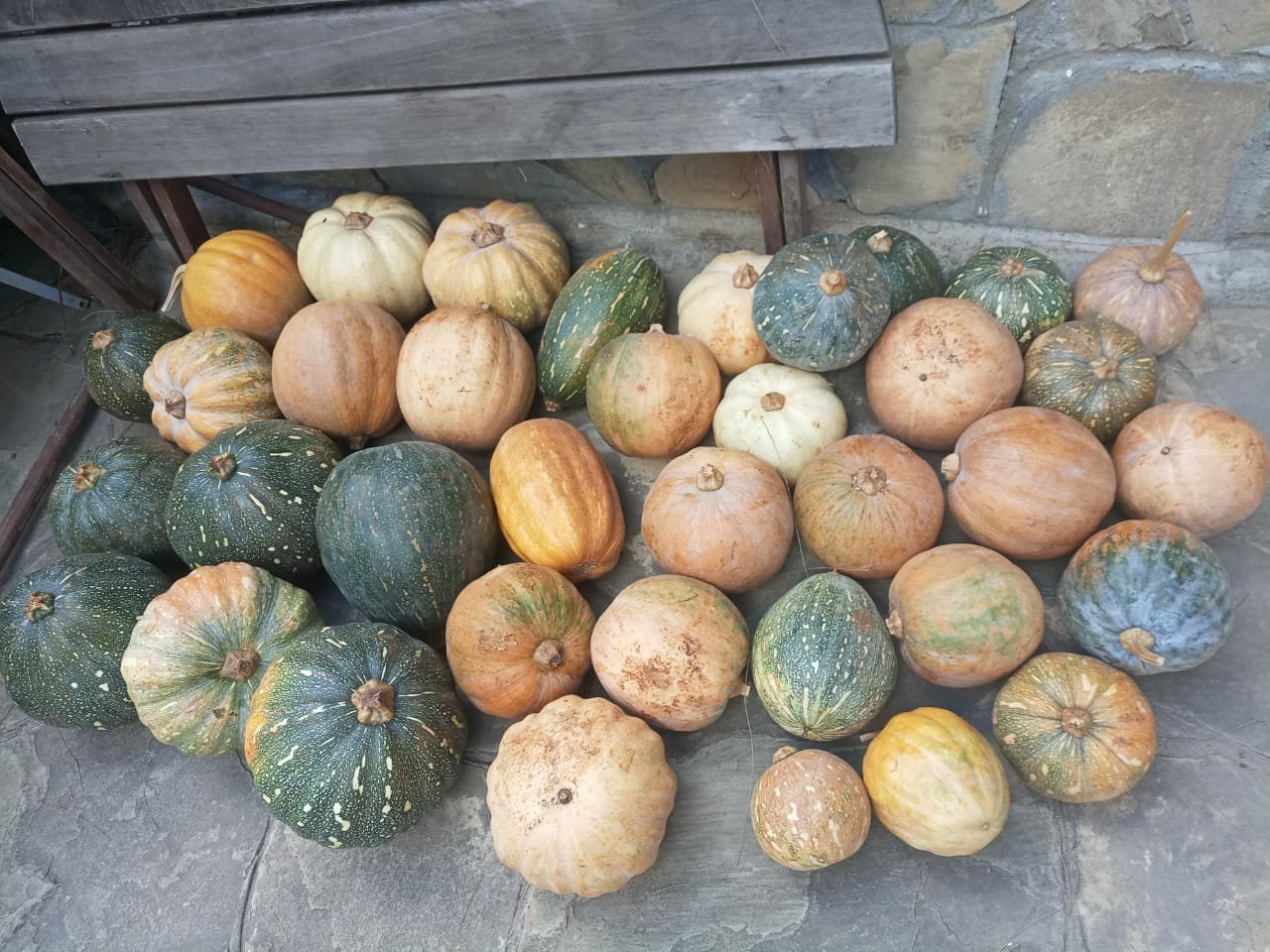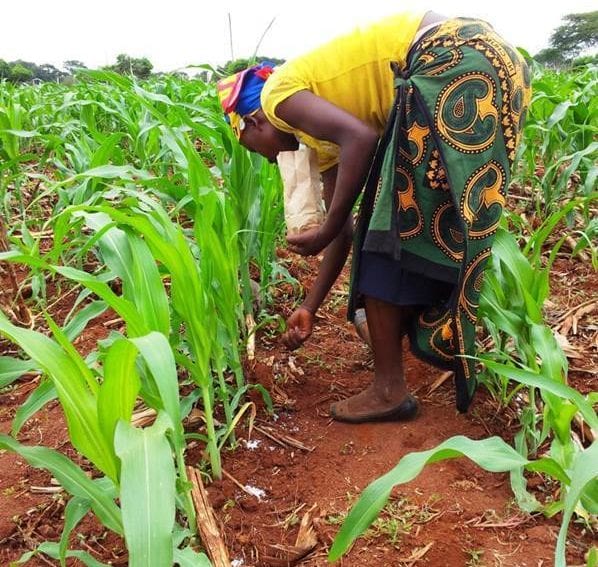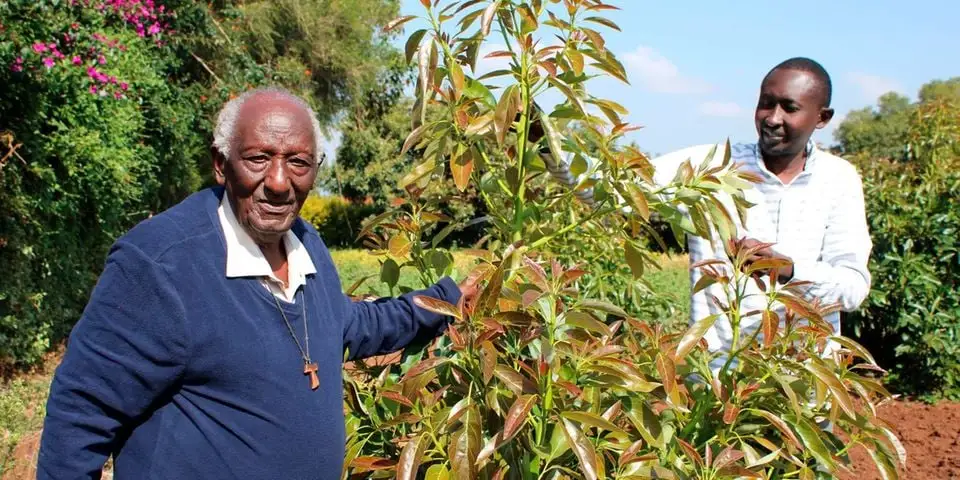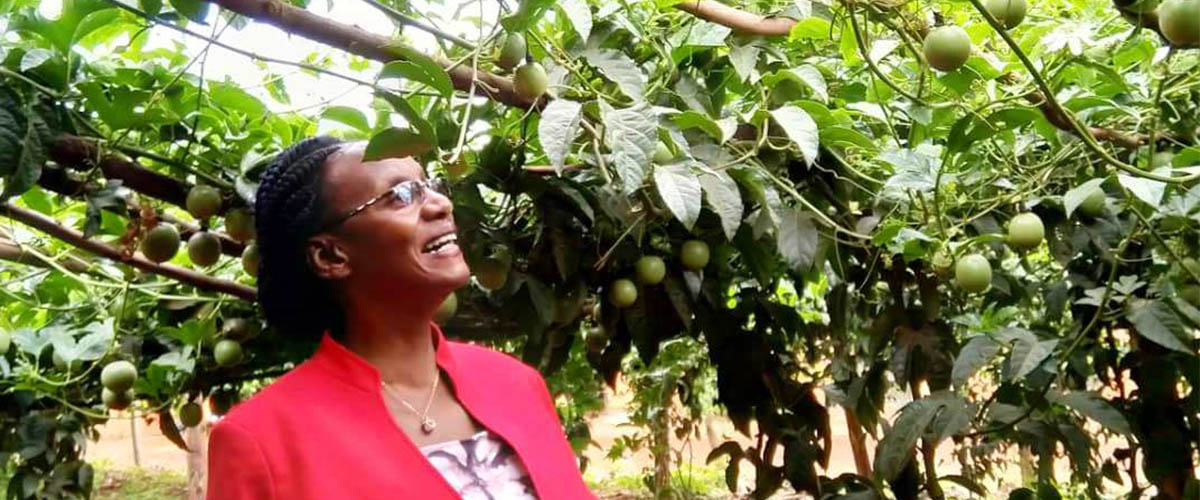When Paul Munyaga landed a farm hand job at a friend’s coffee farm in Gathage village, Gatundu South four years ago, it felt like a dream come true.
Munyaga had trained in coffee farming and was ready to put his skills into work. Unfortunately, the job did not last as his employer died and he was back to zero, tarmacking.
A friend touched by his unfortunate situation invited him to work in his farm.
“Former Ng’enda MCA Michael Kuria allowed me to work at his farm. This is where I learnt about pumpkins farming and how it was lucrative,” he says.
Munyaga who spoke to the Star at his Waturu farm in Gathage village said Kuria, a renowned farmer in the region, gave him some organic Israel giant pumpkin seeds which he had brought from Israel after an agricultural tour.
This is how he begun growing pumpkins even when he was not sure of where to market his produce.
Munyaga had already learnt how to grow the pumpkins for high yields, but little did he know that the pumpkins would turn around his fortunes in 2017 when he planted his first crops on his two-acre farm.
“My first harvest fetched me more than Sh200,000. I couldn’t believe it. A broker who saw some of the pumpkins I was selling at Ngara market in Nairobi, bought them all and sold to some Chinese at Sh50 per kg. This is when I realized my venture was a cash cow,” he said.
Munyaga said he uprooted coffee bushes on his farm and replaced them with pumpkins as coffee was not earning him much.
Currently, he plants around 600 pumpkin plants on his farm which produces between 15 and 20 tonnes of pumpkins. He said a single pumpkin weighing between 10-15kgs goes for between Sh300 and Sh700.
He recently pocketed Sh300,000 after selling 15 tonnes of pumpkins to a trader who was contracted by the United Nations to procure them for the African Union troops in Somalia.
“He agreed to buy the pumpkins at Sh20 per kg and I sold him all that I had harvested. This farming is highly profitable with less production cost. All I need on the farm is two lorries of manure that goes for only Sh35,000 per lorry and water,” he said.
“The prices for pumpkins weighing a kilogram range between Sh15 and Sh50 and the demand is high while production cost is minimal. There is always a ready market including selling them to locals. Again, after harvesting, pumpkins can stay for up to five months without going bad,” he added.
Munyaga said the secret behind improving and maintaining good yields as well as the farming profitability is following the necessary procedures while planting the crops.
He noted that four elements including spacing, use of organic manure, sufficient water and seeds variety matters a lot in pumpkin growing. He said intercropping reduces production.
“The recommended spacing of the holes should be 15ft apart in all directions. This is because pumpkins have males and females. The males sprout first so that they can fertilise the female that gives us pumpkins. Failing to observe spacing will result to very low yields,” he said.
He added, “The holes should be dug 2ft x 2ftx 2ft apart in length and width. Then one should add a wheelbarrow or three buckets of manure to at least one bucket of top layer soil. Each hole is supposed to be planted with three seedlings. This way, the seedlings will have sufficient manure to consume until the pumpkins are ready for harvesting.”
Munyaga who pumps water from a nearby river said pumpkins produce well when they are adequately watered. He has already installed ponds in his farm to store water.
The farmer has been using Organic Israel Giant pumpkin seeds that he got from his friend as well as certified seeds procured from Kenya Plant Health Inspectorate Service.
He also noted that his Waturu farm has started producing its own seeds variety which has been tested and proven to be highly productive. He also uses organic folia to spray the pumpkins.
Speaking of challenges, Munyaga said the major one is melon fly pest that destroys the pumpkins by piercing them during early stages before they are ready.
“The pest is the major problem for any pumpkin farmer. The pests are destructive because they lower production but I control them by spraying the crops with organic pesticides,” he said.
Munyaga said he is planning to start value addition to his pumpkins. He’s already roasting and packaging pumpkins seeds which he sells to commuters plying the Kimbo-Kiganjo road.
“I have the knowledge of adding value to pumpkins like sun drying them and producing flour. All that is hindering me is funds to put up a plant as well as getting clearance from the Kenya Bureau of Standards. But I am looking for partnerships even with the Kiambu county government for value addition,” he said.
The farmer said he has been mobilizing villagers and training them on pumpkin farming so as to start a consolidated market and ensure that the supply meets the demand for the crop.
“I offer training for free to farmers willing to venture into pumpkin growing because I want more farmers to benefit. Again, I usually reach out to the youth to convince them not to wait for white collar jobs but instead get into farming because it is lucrative,” he said.
Munyaga says he has already leased another land in the village to expand his farming.
-Edited by SKanyara





